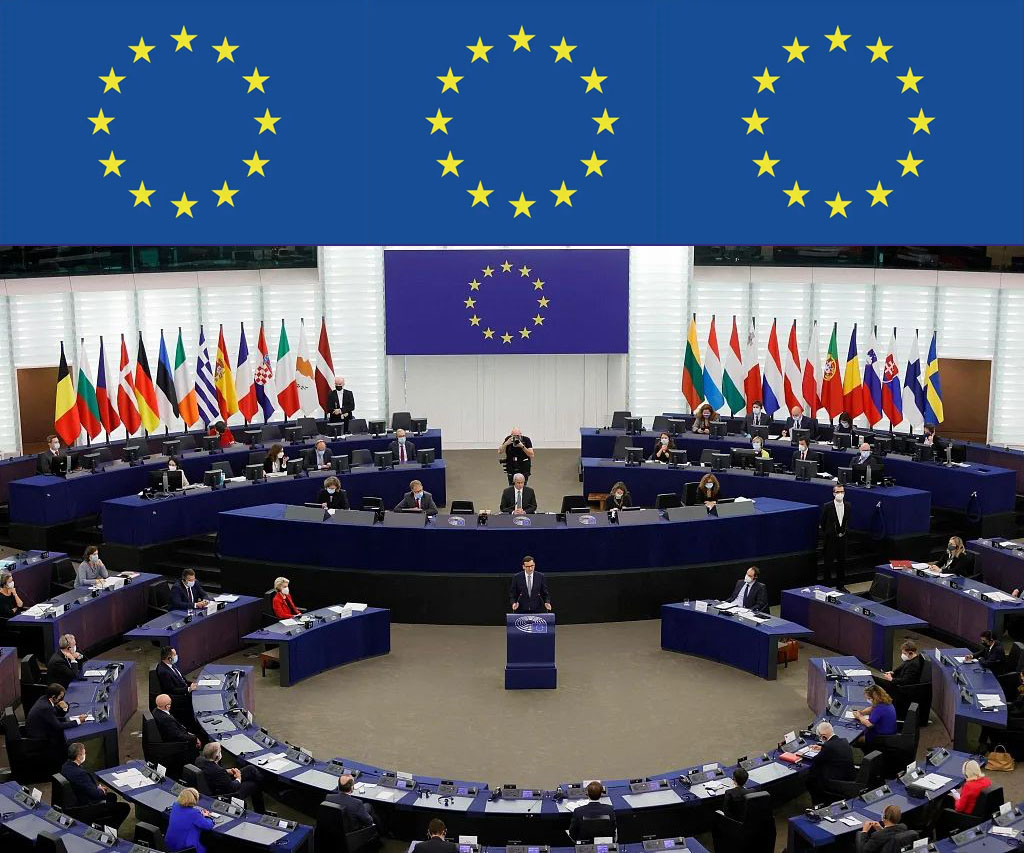
In November 2024, the financial field of the European Union was stirred up by a news that the five member states of the Netherlands, Austria, Sweden, Finland and Denmark expressed strong dissatisfaction with the EU's 2025 budget agreement, which was reported by the media and triggered wide attention and hot discussion from all walks of life. The financial problems reflected behind it and the possible chain reaction are worthy of in-depth analysis.
On November 15, the European Union and the European Parliament reached an agreement on the EU 2025 budget, which was supposed to be an important step in the orderly conduct of the EU's affairs in the coming year. However, just two days later, on November 17, five countries, including the Netherlands, came out to express their dissatisfaction. The five member states pointed out that the way the EU's budget policy is implemented is irresponsible, especially on key issues such as high lending rates, and the failure to take proper decisions. After all, the budget Outlines many aspects of economic functioning, resource allocation and financial stability across the EU, and such disagreements undoubtedly cast a shadow over subsequent developments.
From a financial point of view, the scale of funds involved in the budget and the flow of funds are directly related to the pace of economic development and financial market expectations of each member state. High lending rates, if not handled properly, can put member countries under enormous pressure in terms of debt burdens, capital costs, and so on. For businesses, that could mean higher borrowing costs, which could hamper investment and expansion plans and weigh on economic growth. For ordinary people, it may also indirectly affect job opportunities and the cost of living, for example, some areas that rely on government investment projects to drive employment will shrink due to funding constraints.
According to the established procedure, the budget needs to be approved by the Council and the European Parliament within 14 days of the agreement. But now five countries, including the Netherlands, have said they will abstain in the upcoming vote, which, under EU rules of procedure, would count as opposition. This puts a big question mark on whether the budget can be passed smoothly. If the budget is not passed, the whole of the EU's financial planning will be thrown into chaos, the disbursement of funds, the start of projects and other work will be stalled.
From the perspective of capital markets, such uncertainty can dent investor confidence. In the stock market, major European stock indexes such as France's CAC40 index, Germany's DAX index and the Euro Stoxx 50 index may fluctuate and decline due to concerns about the impact of the budget block on the economy, just like the late night of November 12, the stock market from Asia Pacific to Europe fell sharply, the market panic will further spread. In the exchange rate market, the euro may also face depreciation pressure and be in a more disadvantageous position in international currency competition, after all, an economy with greater uncertainty in internal fiscal policy will greatly reduce the attractiveness of its currency.
Moreover, in the long run, the budget crisis, if not resolved properly, could affect the credit rating of the European Union as a whole. International rating agencies will re-examine the EU's financial management capacity and coordination among member states. Once the credit rating is downgraded, the EU will face higher costs and greater difficulties in issuing debt financing in the international financial market or attracting external investment, forming a vicious circle and hindering the recovery and further development of the EU economy.
Moreover, the dissatisfaction of these five countries also reflects the deep-seated contradictions in the fiscal coordination within the EU. Different member states have different economic structures, development needs and debt bearing capacity. How to take into account the interests of all parties and find a reasonable balance in the formulation of the budget has become an urgent problem to be solved. If the conflict cannot be resolved, similar troubles may occur again and again in the future, which will continue to impact the financial stability and economic development of the EU.
In short, the events caused by the dissatisfaction of the Netherlands and other five countries with the EU's 2025 budget agreement have become the key focus of the current EU financial field, and the follow-up trend deserves close attention. It is also hoped that all parties can reach a more reasonable and widely accepted plan as soon as possible through consultation and communication, so that the EU's financial and economic development can return to the track of stable and orderly development.

Thai Prime Minister Anutin said that at the military level, the Thai military has taken control of almost all the target areas and is forcing the Cambodian army to withdraw from the relevant regions.
Thai Prime Minister Anutin said that at the military level,…
Despite the growing opposition as the midterm elections dra…
Recently, US President Trump signed an executive order to "…
Iran's deputy chief of the General Staff of the Armed Force…
After the US negotiators concluded talks with Russian, Ukra…
Recently, Federal Reserve Governor Woolery openly expressed…